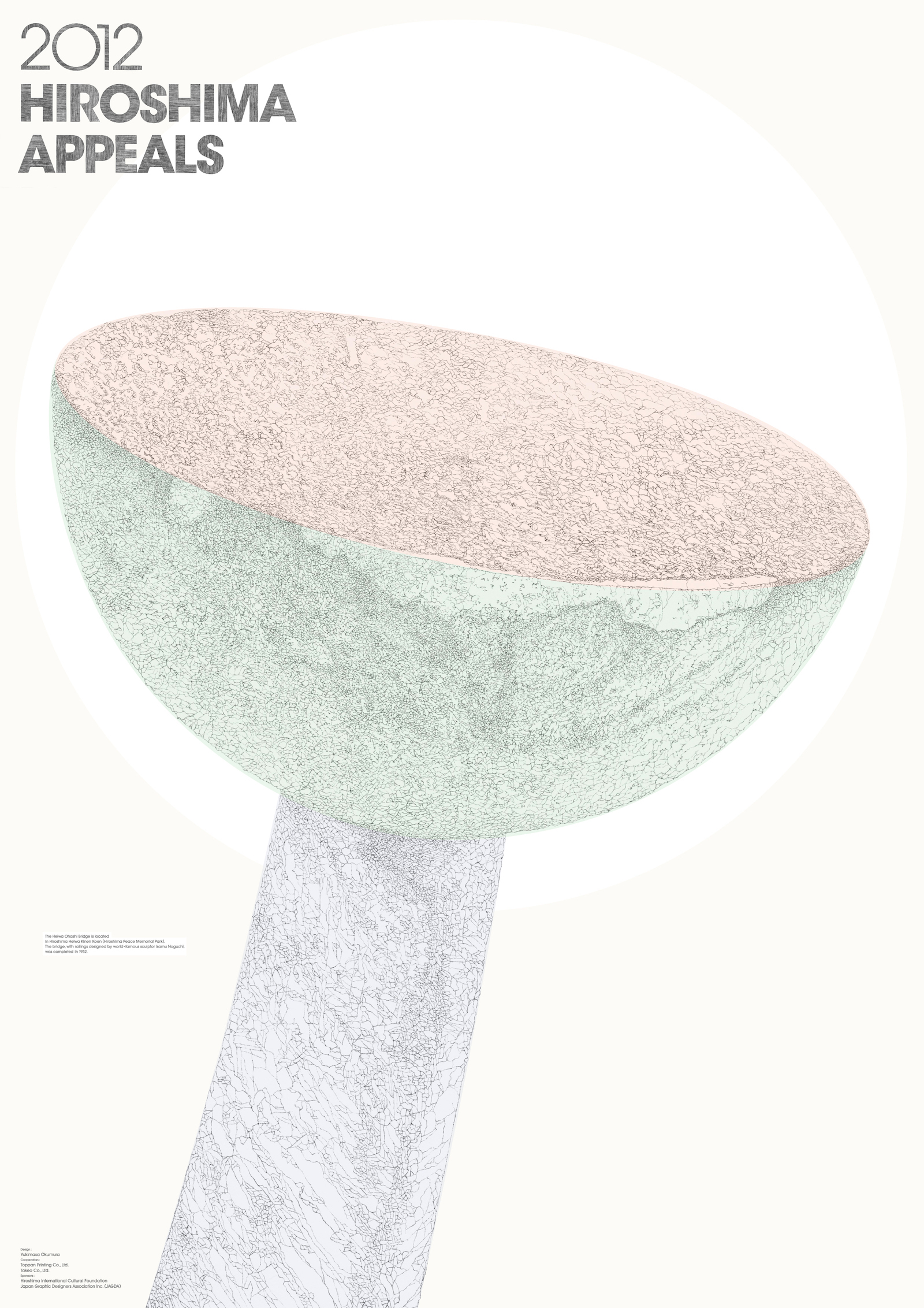Hiroshima Appeals 2012

Comment from Designer
I was requested to create a poster for Hiroshima Appeals for the first time as a graphic designer born after World War II. At a later date, I walked around Hiroshima City and decided eventually to create a poster under the theme of the railings of the Heiwa Ohashi Bridge, designed by Isamu Noguchi. I sketched the railings and shot them with a 6×6 film camera until sunset. After returning to Tokyo, I prepared for poster creation, selecting photographs and tracing large prints with India ink and fine-point brushes. I also hand-drew the logo. I continued to work on the poster, and it took around two weeks. I selected this method because I believed that it was adding labor (my own work), instead of expressing myself, is the only way for me, who was born in 1947, to commit to the theme of Hiroshima.
Hiroshima Appeals Poster Campaign
In 1983, the Japan Graphic Designers Association Inc. (JAGDA) and the Hiroshima International Cultural Foundation announced their collaboration on a project focusing on the theme “Hiroshima’s Spirit” and launched a poster campaign with the goal of promoting peace at home and abroad. The first poster, entitled “Burning Butterflies”, was created by Yusaku Kamekura, the president of JAGDA at the time. Designers affiliated with JAGDA produce one poster each year.
The posters are sold to the general public and exhibited in a nationwide tour called the “Peace Poster Exhibition”. Posters in the series have engaged citizens around the world, displayed in the Atomic Bomb Exhibition preceding to the historic 1985 Geneva Summit, and the exhibition entitled “Hiroshima: A Message for Peace among People” held in Barcelona and Valencia in Spain, and Aosta in Italy in 1997. The 2008 poster was sent to several member cities whose mayors are members of the international group Mayors for Peace. The “Hiroshima Appeals” project, conducted annually from 1983 till 1991, was reinstated in 2005 to commemorate the 60th anniversary of the end of World War II.
Designers: 1983 Yusaku Kamekura; 1984 Kiyoshi Awazu; 1985 Shigeo Fukuda; 1986 Yoshio Hayakawa; 1987 Kazumasa Nagai; 1988 Ikko Tanaka; 1989 Mitsuo Katsui; 1990 Eiko Ishioka; 2005 Masayoshi Nakajo; 2006 Koichi Sato; 2007 Shin Matsunaga; 2008 Masuteru Aoba; 2009 Katsumi Asaba; 2010 Keisuke Nagatomo; 2011 Susumu Endo; 2012 Yukimasa Okumura


